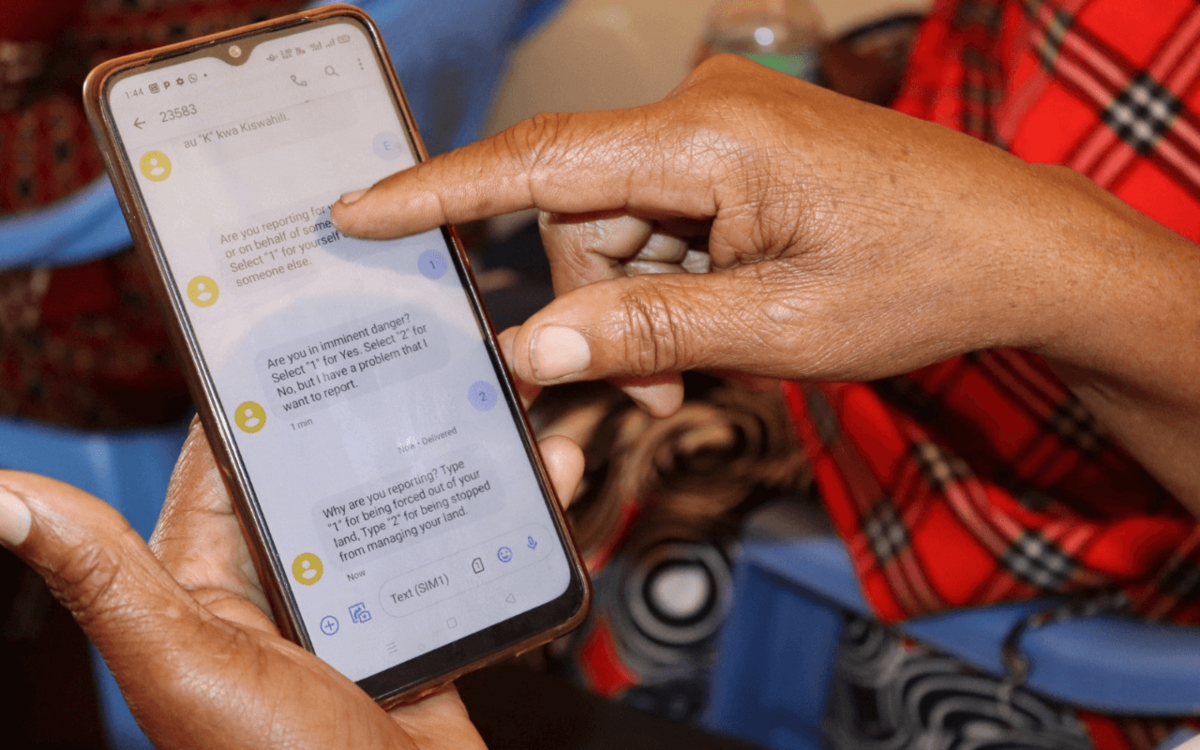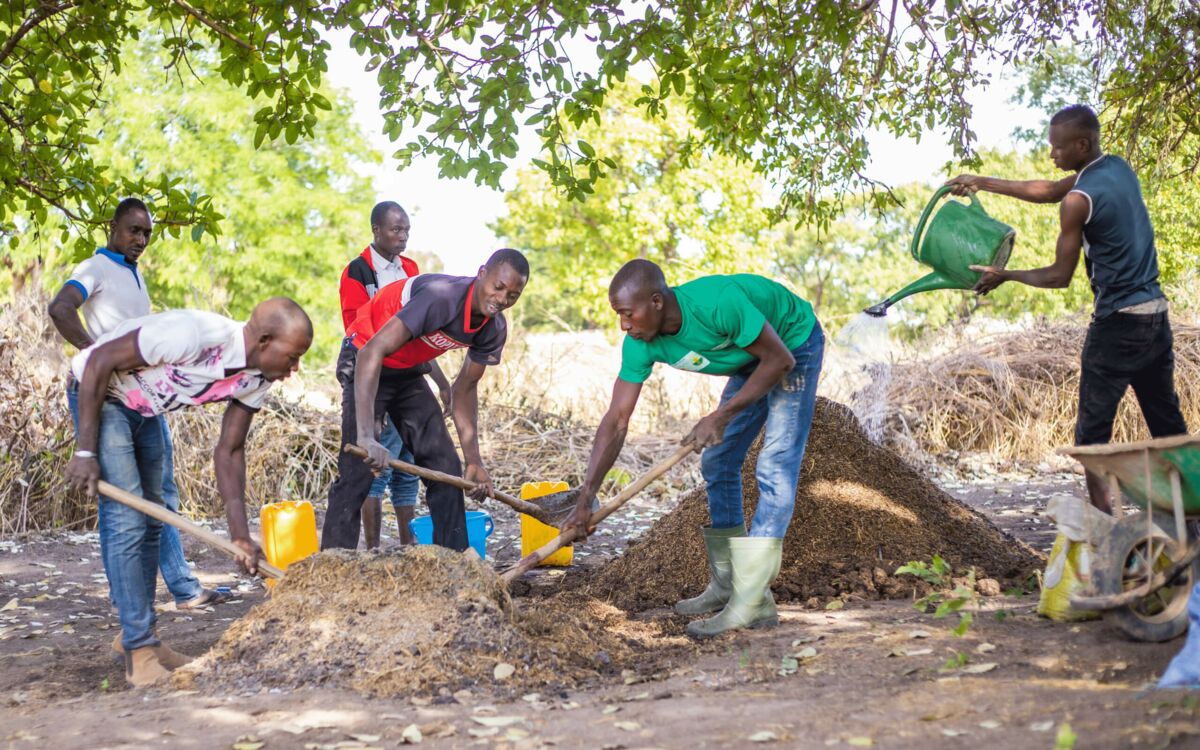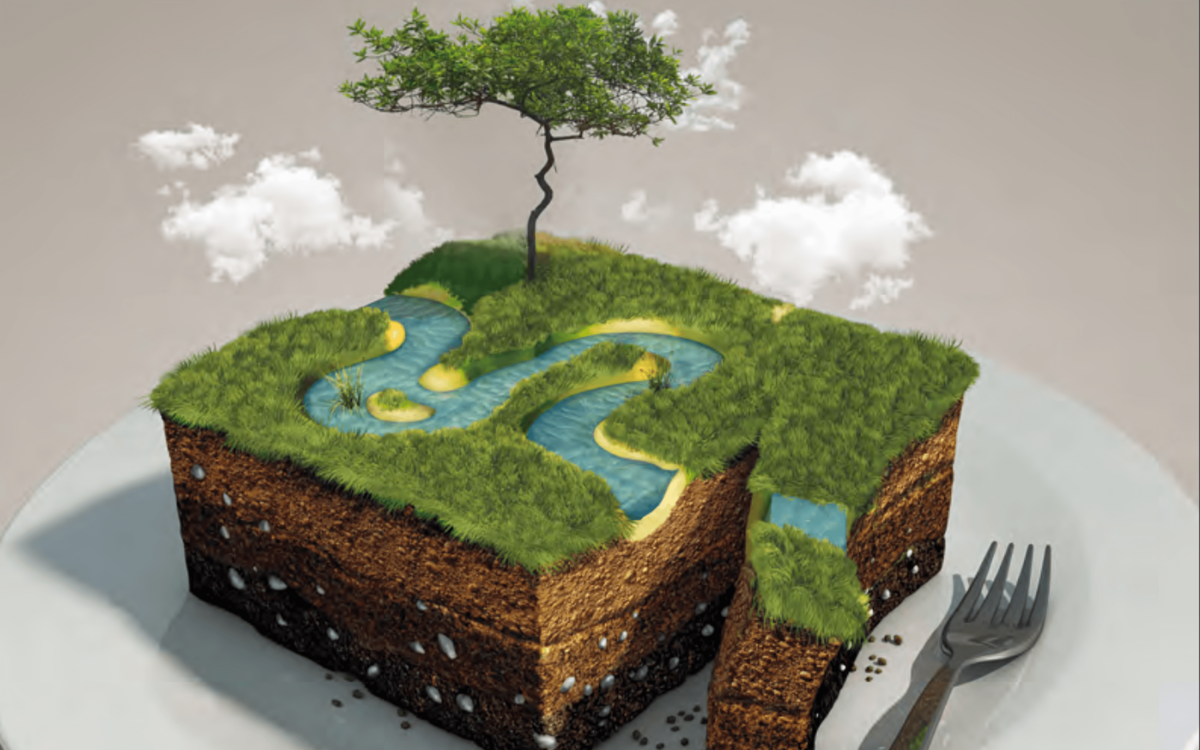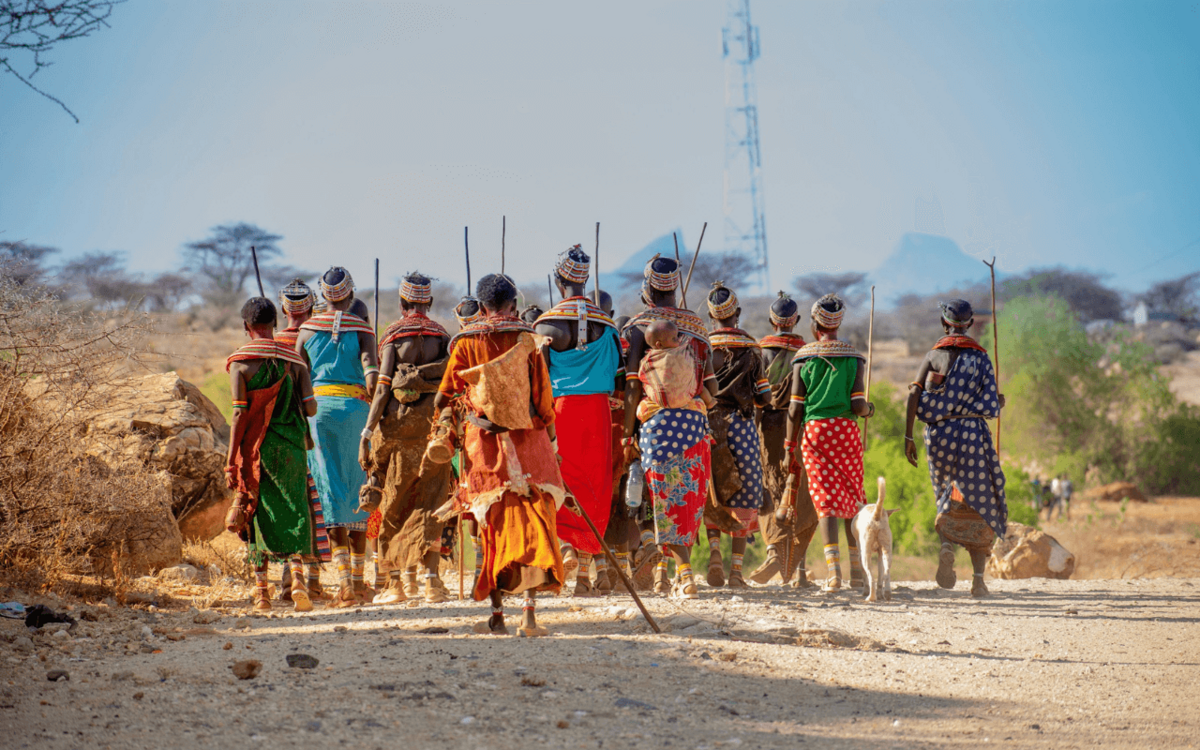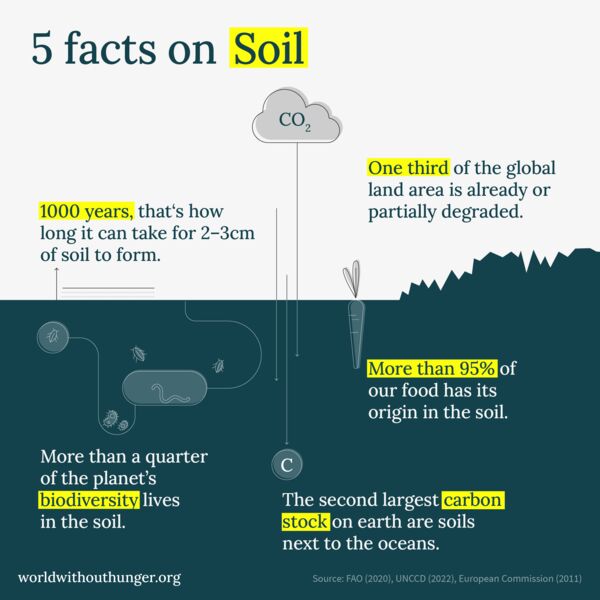Our Legacy, Our Future
Soil and land are one of humanity's most important resources. Yet at the same time, the future of those resources is at stake. Desertification, land degradation and drought are among the most pressing environmental challenges of our time: A third of the world's land is already considered degraded. Despite this, soil-based production accounts for over 95 per cent of our food. But how can we preserve soil and land in the long term?
Jochen Flasbarth, State Secretary at the Federal Ministry for Economic Cooperation and Development (BMZ), emphasises the relevance of healthy soils for our future and explains the importance of the "Desertification Convention" UNCCD in this context. The African consultancy Sense, the TMG Think Tank and the Deutsche Gesellschaft für Internationale Zusammenarbeit (GIZ) outline approaches and ideas for protecting soil and land – from securing women's land rights and composting for greater soil fertility to healthy and soil-friendly recipes in a cookbook. Researcher Dr Rick de Satgé will also discuss the status of securing the land rights of indigenous people.
"Leaving no-one behind means investing in sustainable agriculture which protects the land, feeds more people, provides jobs and is resilient to the growing number of adverse weather conditions."
- Jochen Flasbarth, State Secretary of the German Federal Ministry for Economic Development
Episode 4: Land matters! Why is soil so important for our agricultural and food systems?
In this episode we talk to Natalia Rodríguez Eugenio (FAO), Andrea Meza (UNCCD), Delwendé Innocent Kiba (former Minister of Agriculture of Burkina Faso), and Benedikt Bösel (German farmer): How does the quality of soil affect global food production? How can we keep soils healthy and nutritious? And: How can we prevent further land loss?
APPROACHES AND IDEAS FOR OUR LEGACY, OUR FUTURE
The private sector, research and implementation organisations introduce their projects and show how they already contribute to healthy soils for present and future generations.
Figures, Facts and Data
Here are some facts, figures and data on soil development over the last few decades.
Why is soil health so important to us and how has it changed over time?
SIMILAR ARTICLES ON FOOD4TRANSFORMATION
How can traditional and innovative practices be combined to improve soil? Why is securing women's land rights essential and what was discussed at this year's Africa Fertiliser and Soil Health Summit (AFSH)? Find answers to these questions in the following related articles.

How to Enhance Soil Organic Carbon – Uniting Traditional and Innovative Practices
In India, the Green Revolution lifted millions of people out of poverty, yet the large-scale use of chemical fertilizers left the country’s soils severely depleted. ProSoil shows how Indian farmers join traditional and innovative practices to not only restore their soils but also mitigate climate change.

Towards Climate Justice: Securing Women’s Land Rights for a Resilient Tomorrow
In the midst of global climate discussions, a resounding call emerges: Women's land rights must be the cornerstone of our climate actions. They're not just pieces of the puzzle; they form the foundation for true climate resilience. As we transition from the African Climate Summit to COP 28, and in view of the far-reaching African Carbon Markets Initiative, joint coalitions to advocate for a just transition that builds on securing women’s land rights are needed. TMG Think Tank for Sustainability reports from the first African Climate Summit.

African countries decide to tackle soil health challenges
At the Africa Fertilizer and Soil Health Summit (AFSH), organized by the African Union (AU) and the Government of Kenya in May, the Nairobi Declaration was adopted. It aims to triple domestic production of organic and inorganic fertilizers by 2034 and to improve access and affordability for smallholder farmers. In addition, countries committed to reversing soil degradation and restoring soil health to at least 30 percent of degraded soils within the same timeframe. GIZ reviews the Summit.


